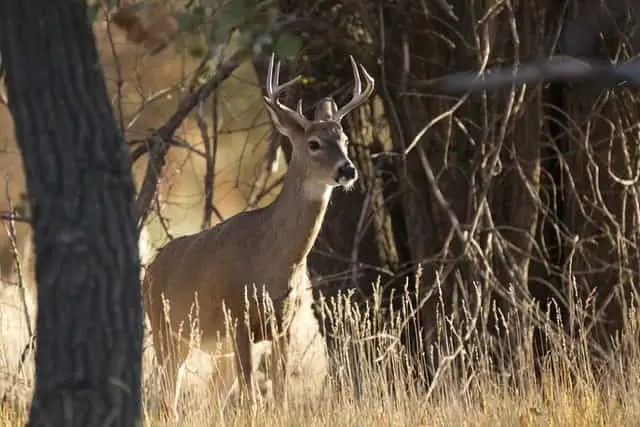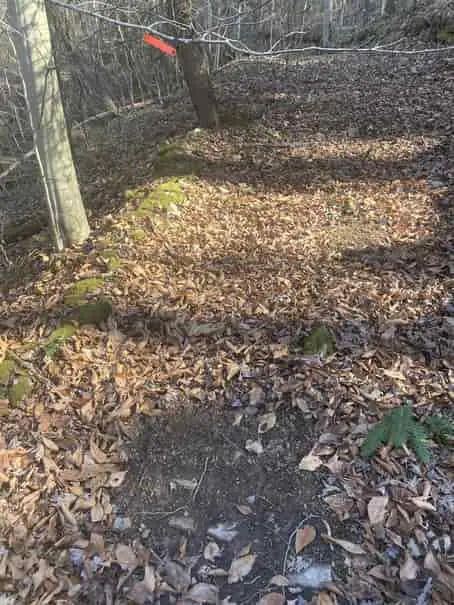
If you are a whitetail fanatic, you may wonder why you can only hunt deer a few weeks of the year.
The answer to this question requires a deep dive into how deer populations remain in balance, and how wildlife managers dictate seasons in each state.
Table of Contents
- Why Is Deer Season So Short?
- Why Can’t Deer Be Hunted All Year?
- Reasons Deer Season Is So Short
- Why is Bow season so short?
- Which States Have the Longest Deer Season?
- What Are the Penalties for Hunting Out of Season?
- Conclusion
Why Is Deer Season So Short?
Deer season is short so that deer populations are not overhunted. Season lengths and bag limits are calculated based on the predicted number of deer harvested each year along with the overall deer population in an area. In most states, deer hunters are able to meet that harvest quota is 3-5 weeks.
This article will clarify how deer populations are regulated through hunting season, why season lengths vary in different places, and why it is essential to set limits on hunting season.
Why Can’t Deer Be Hunted All Year?
Deer hunting seasons are deliberately planned in the fall and winter months when bucks are solitary, and before does (female deer) have birthed fawns. Hunting year-round would be detrimental to the health of deer populations. Seasonal hunting is the key to maintaining a healthy recreational harvest.
Furthermore, deer populations are fragile and need to be monitored and regulated to ensure the species do not become endangered or overpopulated.
Reasons Deer Season Is So Short
Now, let’s take a more in-depth look into the reasons deer season is so short.
1. Regulation of the Deer Population
The regulation of deer populations is a difficult task. Each year conservation workers must assess how the deer population is fairing and attenuate the number of tags allowed for hunters.
In some places, hunting season is long because it takes longer to get the deer population in check. More tags are given out in places like this, and the season can range from 60 to 100 days.
Other places have a fragile or low deer population, so the season is kept short to preserve the population.
The ways that deer populations are regulated throughout the United States varies considerably.
For example, the deer season where I live in Florida starts in July in south Florida and ends in February in North Florida. This is one of the longest deer seasons in the country!
However in Kentucky for example, the rifle season for deer only lasts about 11 days.
Each state and even region (or county) may have a different deer hunting season, bag limit, and approved method of harvest.
Though it may be tempting to agree with the sentiment that deer seasons should be longer, historically, long deer seasons in the United States have been bad for both deer populations and hunters.
Before the 1930s, there was little regulation of deer hunting in the United States. As a result, deer were drastically overhunted. By the time the 1930s arrived, the deer population in the United States had numbered as little as 300,000.
Thanks to regulations put in place during the 1930s, the whitetail population in the United States was able to go from the edge of extinction to being estimated at 25 million strong today.
2. How Deer Are Hunted Determines the Season Length
Deer are hunted in one of three primary ways, and these ways are differentiated by the various weapons that are used. They are:
- Rifle Hunting
- Bow Hunting
- Primitive Arms Hunting
These different seasons also determine the length of the current “deer season.”
Rifle Hunting Season
Rifle season in most states is kept short. In many Midwestern states, rifle season can be as short as a week long.
On the other hand, Southern states have a rifle season that can go on from 68 to 100 days. In the Northeastern United States, rifle season typically runs for a few weeks in the Fall.
Rifle season usually starts in October and runs for 14 to 16 days, varying between states. There is an additional late-season hunt in some places, often in late November, that allows an extra few days of hunting. However, this may not apply to every class of firearm, so learn which rifles your state allows.
There is variation in rifle season between which classes of rifles are allowed at which times. For example, shotguns have a designated time frame in which they are legal to hunt, whereas long-range rifles may have a different time course.
Look up your state’s hunting laws to determine when it is legal to use your specific firearm.
Bow Hunting Season
Bowhunting season in some states both starts before rifle season and ends after it. Since bow hunting is challenging, far fewer deer are killed each year by bows. This allows for bow hunting season to go on longer than rifle season.
Most people that hunt deer with a bow do so with a compound bow, and these are typically the type of bow that legally allow people to hunt deer within most states.
Although many states now allow hunting with a crossbow, it is common to regulate it, as a crossbow is far easier to use than a compound bow. If crossbows are allowed, it usually coincides with the earlier bowhunting season.
Primitive Arms Season
Primitive arms refer to muzzle-loaded, single shot, black powder rifles. Primitive arms season for hunting usually occurs for a short period (in most cases, a few days) after the initial rifle season has closed.
Though primitive arms are also rifles, they usually require more skill to hunt with, as they are muzzle-loaded and can only shoot one shot at a time. Since hunting with a primitive arm is more complicated and fewer people own them than conventional rifles, the season does not result in overhunting.

Why is Bow season so short?
Bow season is usually the first deer hunting season to start. In most states this takes place in September or October and usually lasts for 3-4 weeks.
During bowhunting deer seasons, harvest is usually low. Partly because of the difficulty of bowhunting for deer and low success rates, but also because many hunters wait for traditional firearms season to begin.
Which States Have the Longest Deer Season?
If you’re looking to get some extra time in the woods this deer season, consider looking out of state, especially in the Southeast.
South Carolina, Florida, Georgia, Mississippi, Alabama, and North Carolina all have long deer hunting seasons in excess of 100 days.
Conversely, The western states usually have the shortest deer seasons.
What Are the Penalties for Hunting Out of Season?
Hunting deer out of season, without proper tags or license, is not only unethical, but it could also result in a fine as well as the revocation of your hunting license. Though penalties vary from state to state, you can expect a fine between 500 and 3000 dollars for hunting out of season. Repeat offenders can be banned from hunting in any state by the Interstate Wildlife Violator Compact.
If there is one thing that environmental police take very seriously, it is poaching. In some places, such as California, poachers can be sentenced to six months in county jail for killing a deer out of season.
However, more common than jail time is the suspension of one’s hunting license or the freezing of their ability to obtain a hunting license in the future. In addition to this, poachers can expect a very steep set of fines.
Some may think that these fines seem harsh, (or not harsh enough!) but it is essential to remember that deer populations could again be threatened if poaching goes unpunished. Killing deer out of season increases the chances that fawns will die before maturity or that mature deer will be killed before reproducing.
This kind of unregulated hunting has an exponential effect on deer populations, potentially threatening their numbers quickly.
Hunting seasons allow deer populations to flourish, so when that time of the year comes around, there are enough deer for every hunter to get a prized buck.
Look up the laws of your state, as hunting seasons vary widely. You don’t want to be on the wrong end of a fine or even jail time for misunderstanding your state hunting laws. Most states vary even on what time of day or night you are able to hunt.
Here is one great resource that may help you find out when the legal seasons are in your state for different types of deer hunting.
Conclusion
Contrary to popular belief, hunting seasons for deer and other animals are for the long-term well-being of wildlife.
Wildlife biologists, conservationists, and land managers all work together each year to pass rules and regulations related to deer hunting seasons, quotas, and harvest methods.
These hunting seasons are critically important to maintaining a balanced herd of deer, not to exceed the carrying capacity of the land they inhabit.
So the reason deer hunting seasons are so short in many states is because they simply do not need to be very long, in order for wildlife managers and hunters to harvest the quota of deer to maintain balance.
Archery seasons are usually a bit longer, because of the low success rates and difficulty. Rifle seasons are usually the shortest, due to their popularity and higher success rate. And primitive weapons seasons are usually somewhere in the middle.
This, of course, varies by region and state.
Always check with your local fish and wildlife agency or DNR for up-to-date regulations on deer hunting seasons, rules, and regulations in your area. Hunt safe, and have fun!
You May Also Like: Can Deer Smell Thermacell?





